- Home
- Military & Defense
- USS BARRY: Take A Tour Of The US Destroyer Poised To Attack Off The Coast Of Syria
USS BARRY: Take A Tour Of The US Destroyer Poised To Attack Off The Coast Of Syria
The Navy invited Business Insider for a weekend of tests off the Atlantic in late 2012 onboard the USS Barry. The Navy arrived at 5 a.m. to put us on this water taxi by 7:00.

After an hour of heaving seas and whipping saltwater spray, the 505-foot Arleigh Burke-class destroyer came into sight idling off the Virginia seaboard.
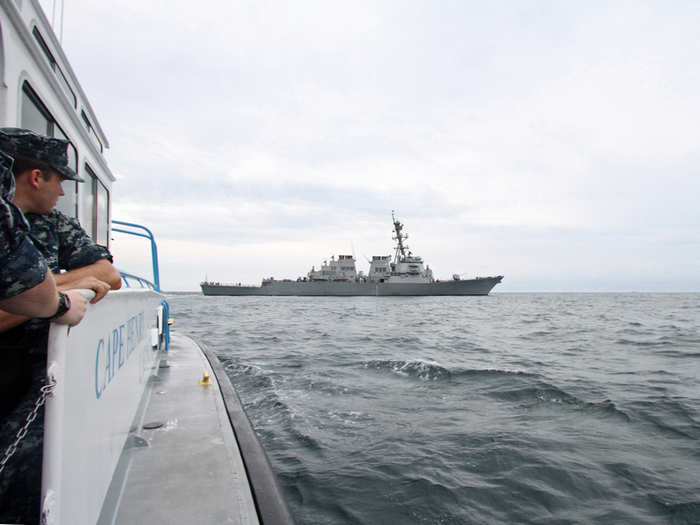
At this point some visiting physicists realized how we'd be getting aboard.
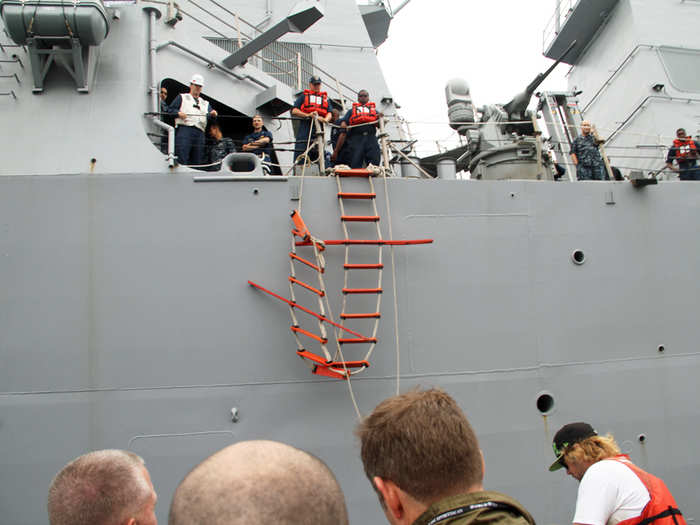
The climb was more difficult than it appeared with a pack, but it was manageable.
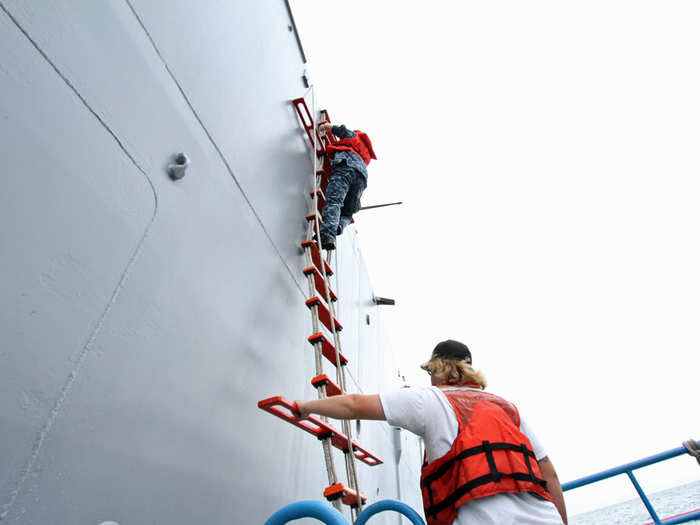
Once aboard, sleeping assignments were provided. Dozens of enlisted sailors sleep down here, and the nights were filled with cellphone alarms.

We'd arrived far too late for breakfast in the mess hall. This is the only space on the ship where hats must be removed because during conflict it serves as a medical ward with bodies laid on the tables. Removing caps shows respect for the dead.
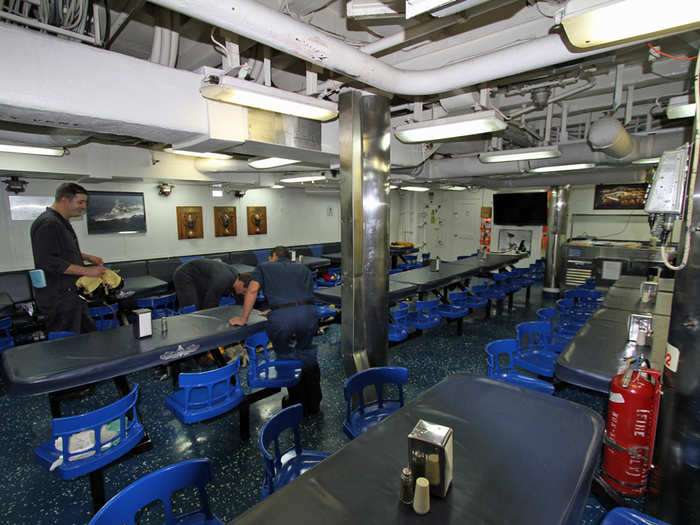
With a bit of time to roam about the Barry, we met this sailor listening for submarines. We asked if he hears whales, like in 'The Hunt For Red October' and he laughed. 'Yes, but I can't tell you anything about them aside from their size,' he said.

From the sonar room we head to meet the ship's Engineering Officer who oversees the Barry's entire power system. Until 2012, the panel of monitors to his right was a bank of dials, knobs, and buttons — no more sending sailors below to see if a problem was actually fixed from here.
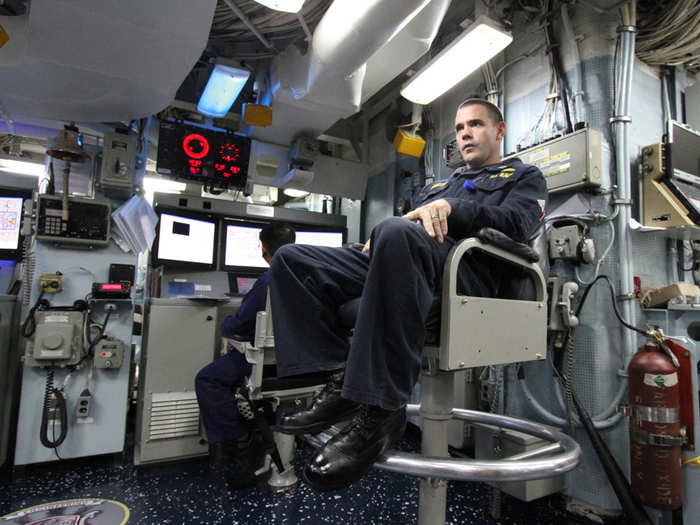
Chief Francis is transferring from the enlisted ranks to Warrant Officer and receiving a new ship assignment. He's 36, has been in the Navy 19 years, and is the one sailor here probably not on the Barry off Syria's coast.

A Navy Chief is part of an elite group of very smart sailors. Chief Francis says he'll miss the camaraderie and fraternal environment of the Chief's Mess where the ship's Chiefs share meals, advice, and determination.
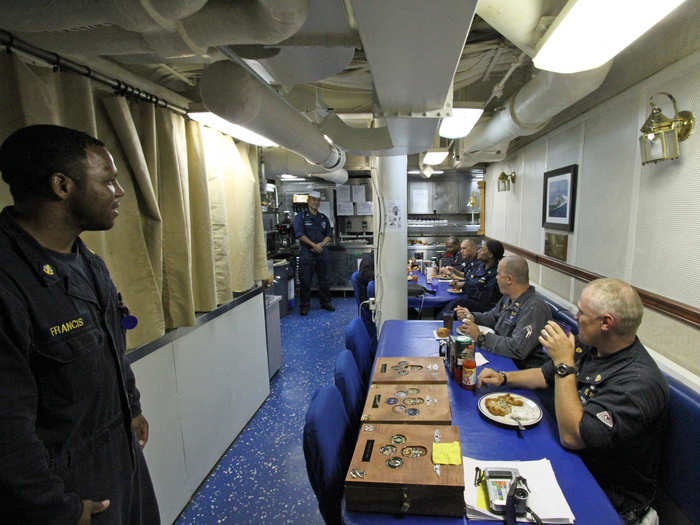
After leaving the Chief's Mess we met Petty Officer 1st Class Carr who was in the middle of an intense six week program leading up to the promotion of Chief. She enlisted in the Navy at 16 with her father's permission. The wooden box is a "Vessel" carried by all potential Chiefs and non-Chiefs have no idea what's in it.
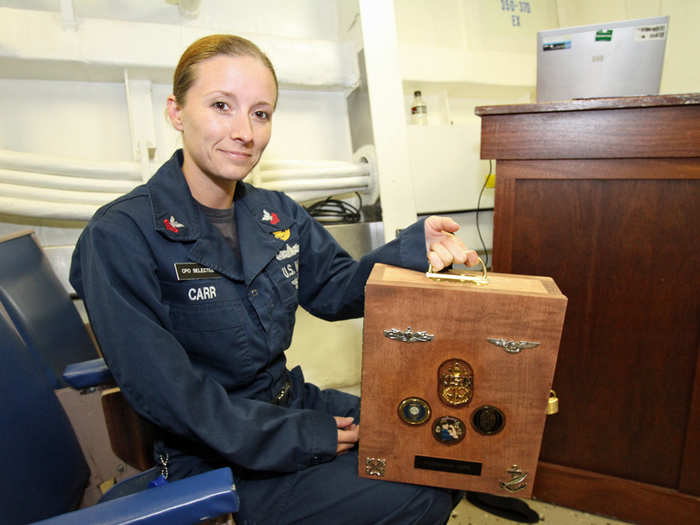
Time for lunch, we find our way to the Officer's Mess. The white cards are menus. Officers circle what they want to eat, hand it to a steward and it's delivered.
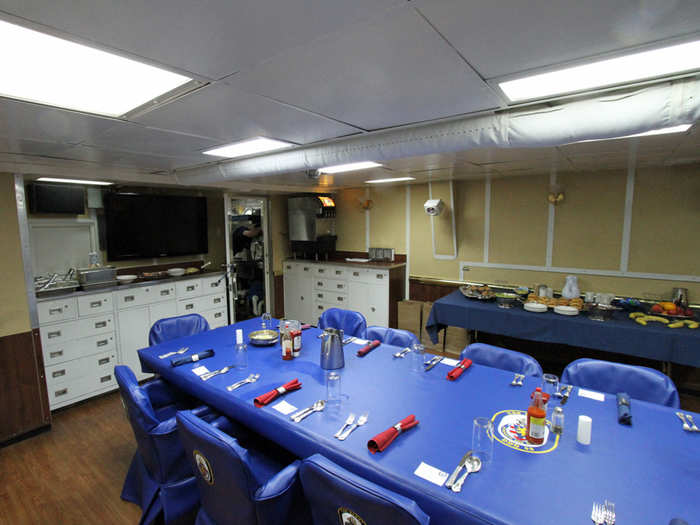
While time savers like quick meals save officers valuable time, the Captain here in his chair on the bridge, doesn't often make it to eat — doesn't often make it to bed either — catching maybe four or five hours of sleep a night.
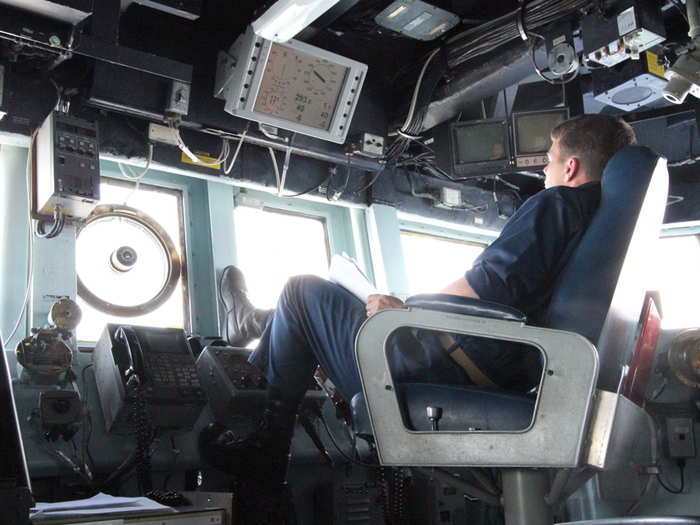
The Captain is waiting for the anchor test to conclude. At several-thousand-pounds, the anchor is attached to the ship by links weighing almost 40 pounds apiece. Here it is being snapped from a free-fall into hundreds of feet of water.
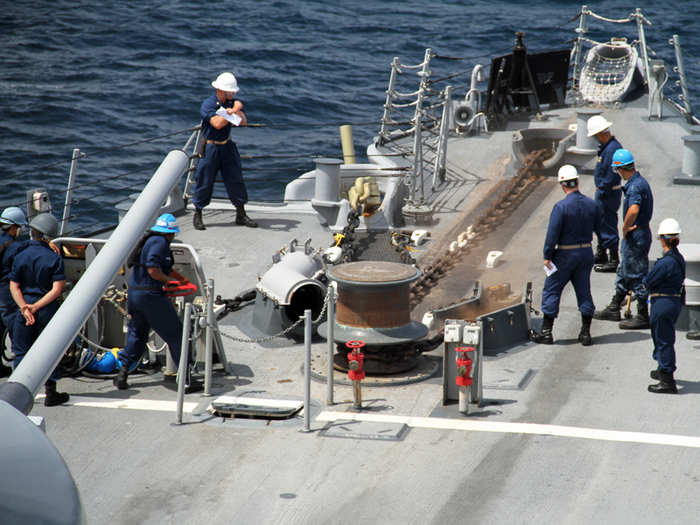
Once the anchor is back in the hold, the crew tests the CIWS Gatling gun. If the Barry is attacked while sending Tomahawk missiles into Syria— this last line of defense will shoot 4,500 rounds per minute creating virtually a solid stream of large, lead bullets.
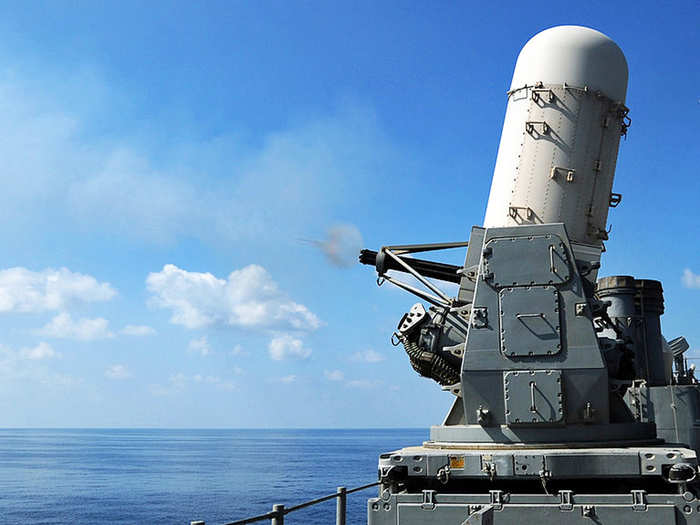
The CIWS sounds like a thick piece of cloth being violently ripped in half over a loudspeaker. It's an incredibly sharp sound even far aft of the firing.
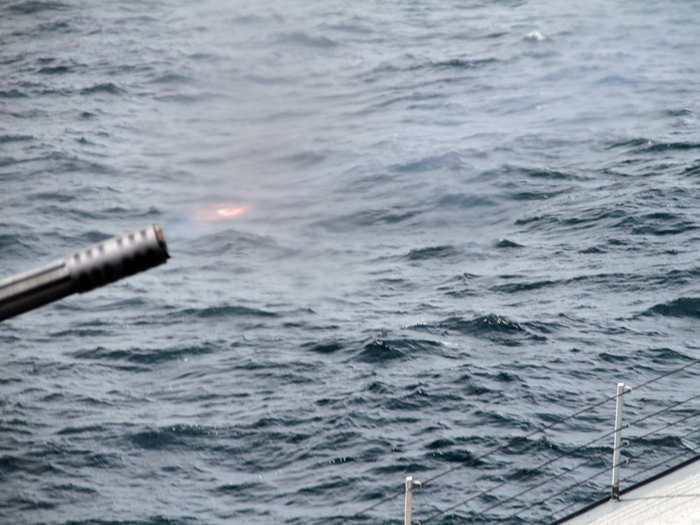
These are the 20mm rounds from the CIWS coming down in the water.
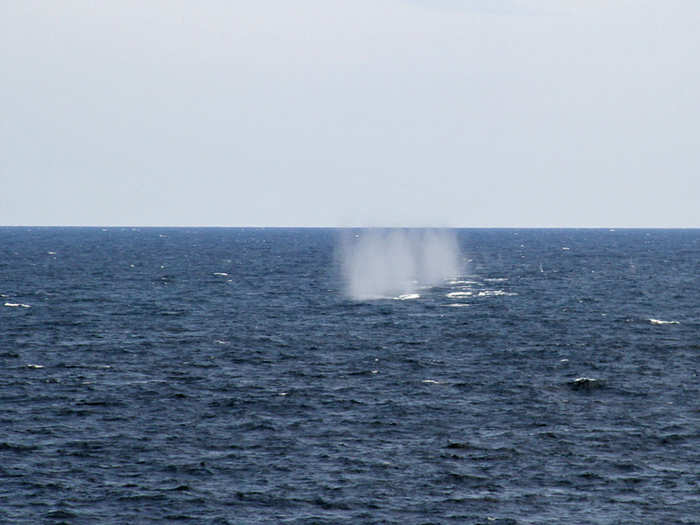
Once the CIWS quiets down, the weapons officer prepares the 20mm cannon for testing — first it is fired remotely with a joystick and camera here on the bridge.
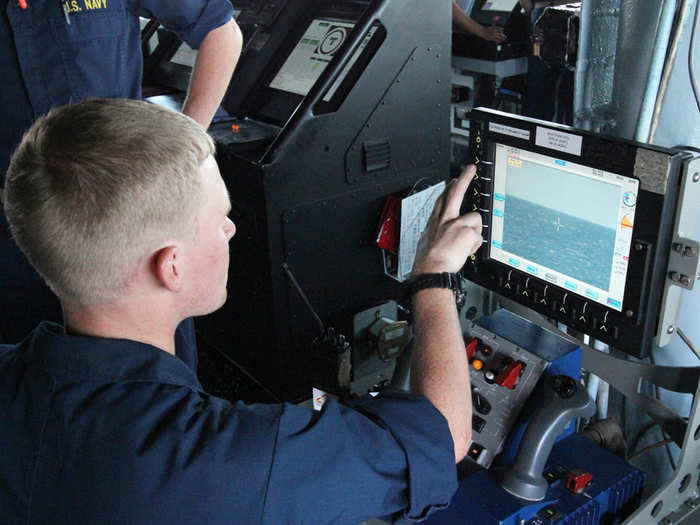
Then one of the weapons crew grabs a helmet and a flak jacket before firing manually down on deck — the cannon would be used against small craft attempting to reach the Barry under combat conditions off Syria.
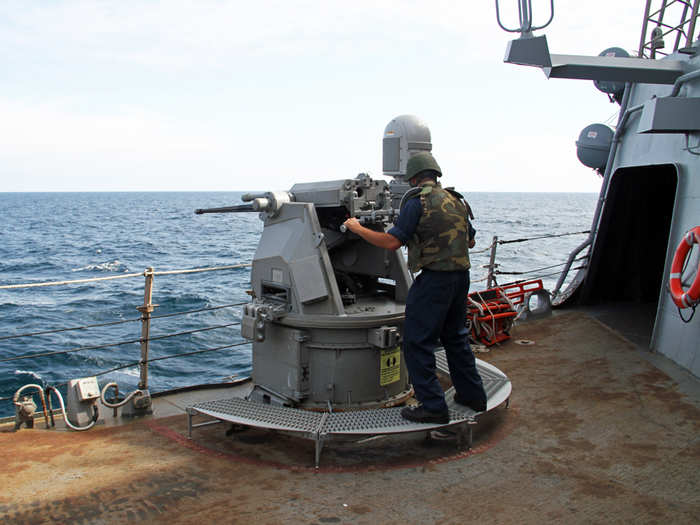
Following the cannon firing, we wait outside the bridge for the 5-inch gun test noticing small signs of wear on the 20-year-old ship.
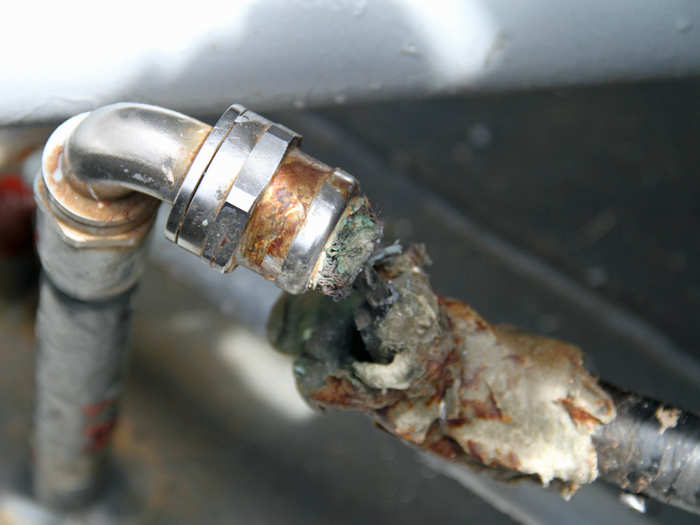
Details like this were addressed long before the Barry and her crew's deployment to the Mediterranean so they can focus all their attention on missions — like a potential Syria strike.
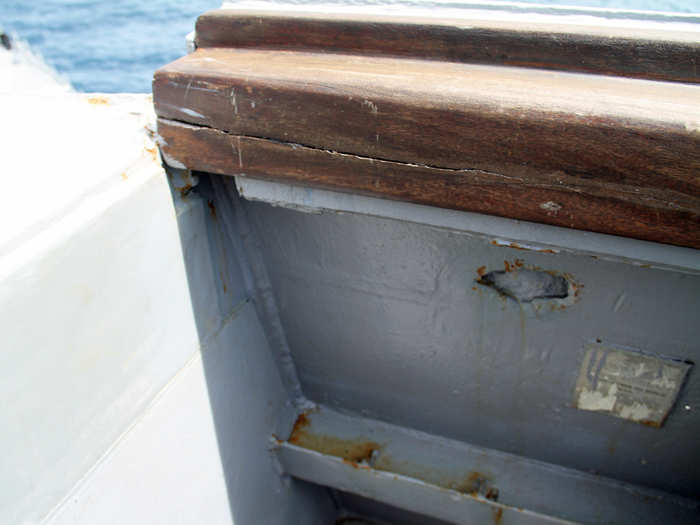
When the 5-inch gun finally lets loose, the explosion is impressive and the tracking system lays down rounds on both sides of the vessel.
With several different types of rounds, the 5-inch is as versatile as it is effective — here are the timed rounds detonating in the distance.
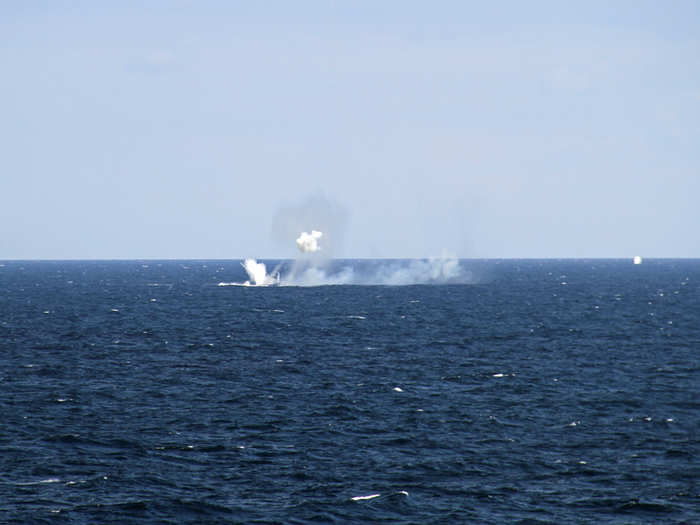
With so many complex systems working together to target, track and fire, the 5-inch can be temperamental. Below deck we see the Barry's weapons crew named their big gun, Lucille.
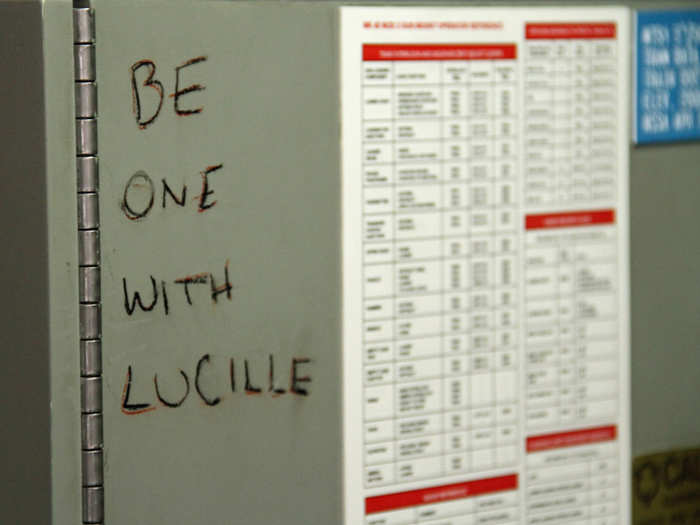
While the 5-inch packs quite a punch — what makes the weapon so lethal is behind this door in the Combat Information Center (CIC). This room is buzzing like a hive right now on the Barry.
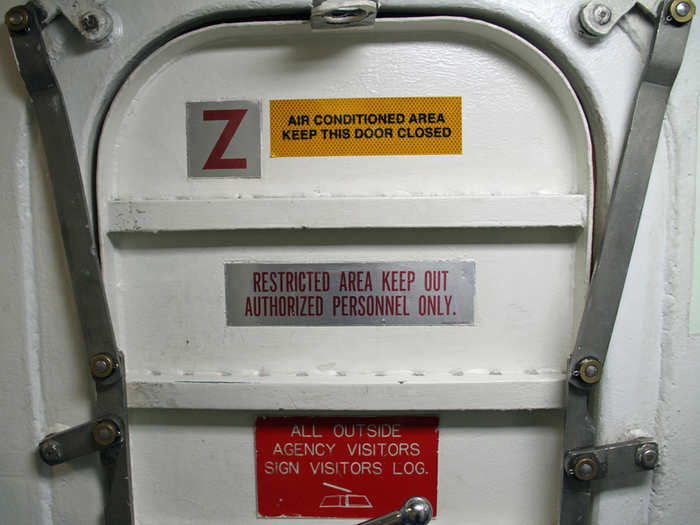
Since we were not allowed photographs, we found stock photos. This is largely what the CIC looks on the USS Barry as it scans the area for potential threats.
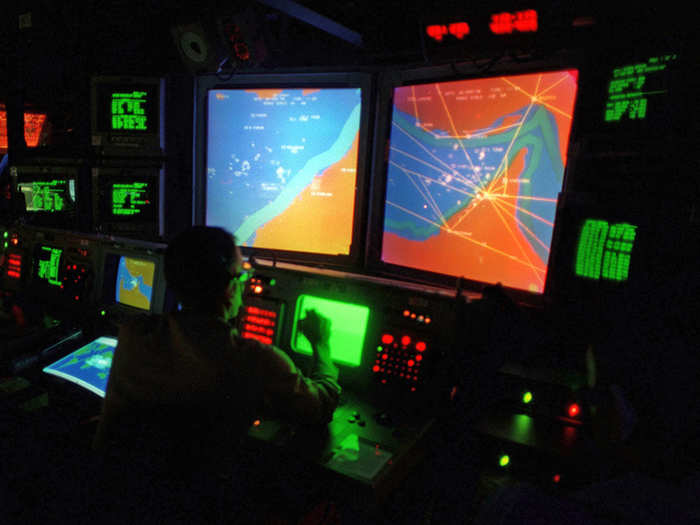
Underwater threats are monitored from the CIC's anti-submarine station, while about 10 sophisticated electronic systems do everything from guide Tomahawks to launch defensive buoys, if the ship's attacked.
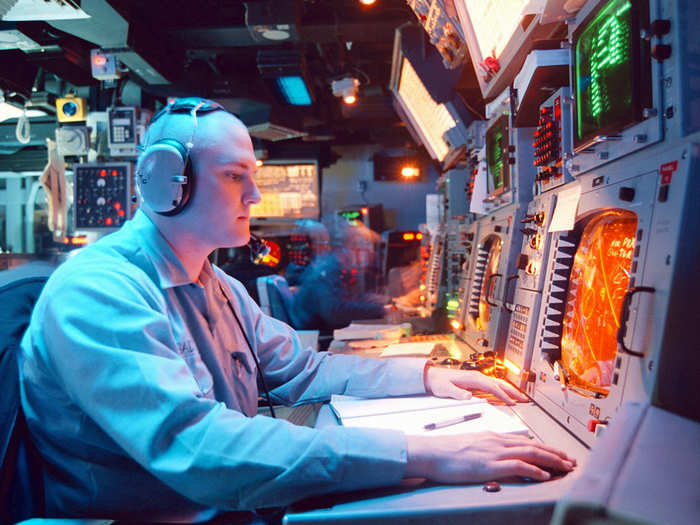
During a Syrian mission these racks will hold missiles.
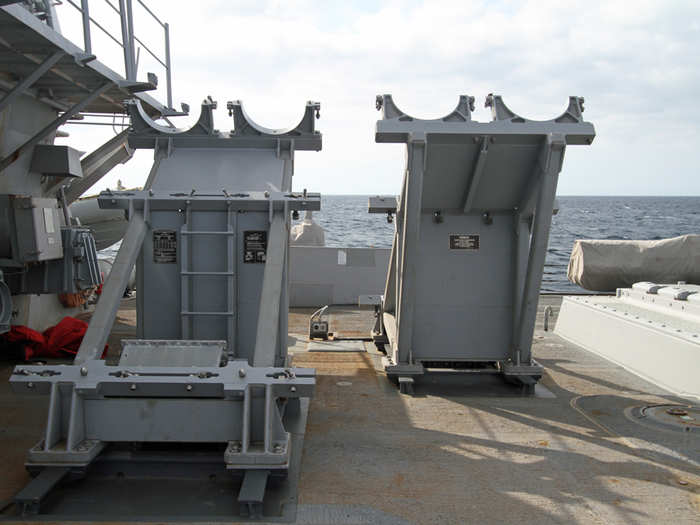
They're right next to the missile launching system that delivered 55 Tomahawk missiles into Libya in 2011.
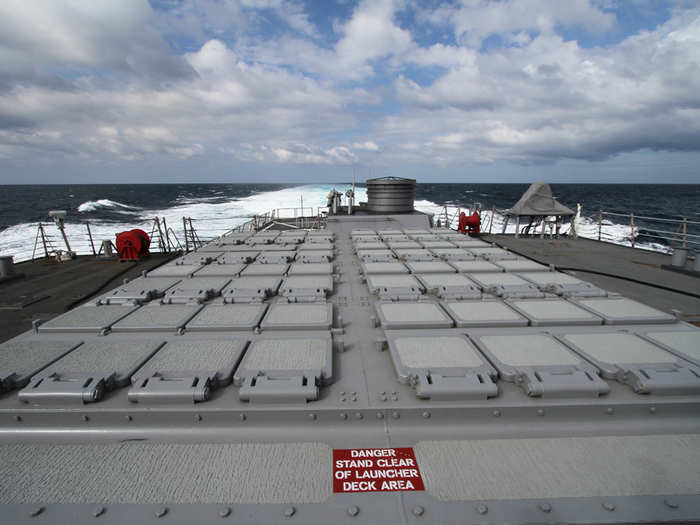
When weapons firing concluded, the ship's flag was changed and the crew settled in for an unusual ride.
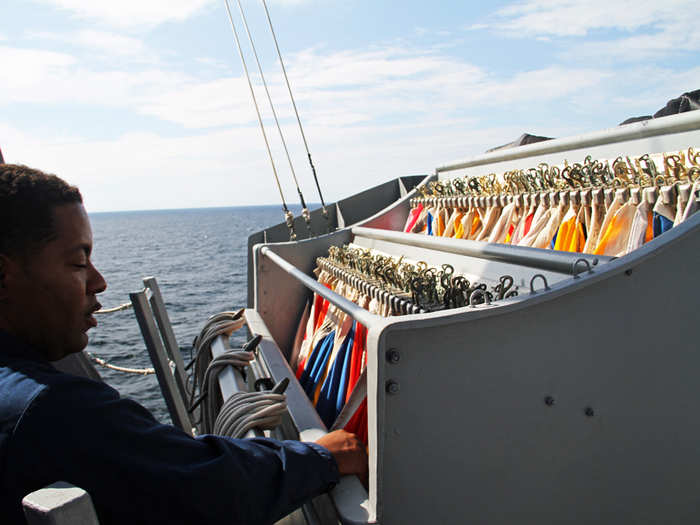
It's impossible to know what the ship will be required to do during combat and the final test of the day involved steering. This is the wake behind the Barry for the majority of the trip.
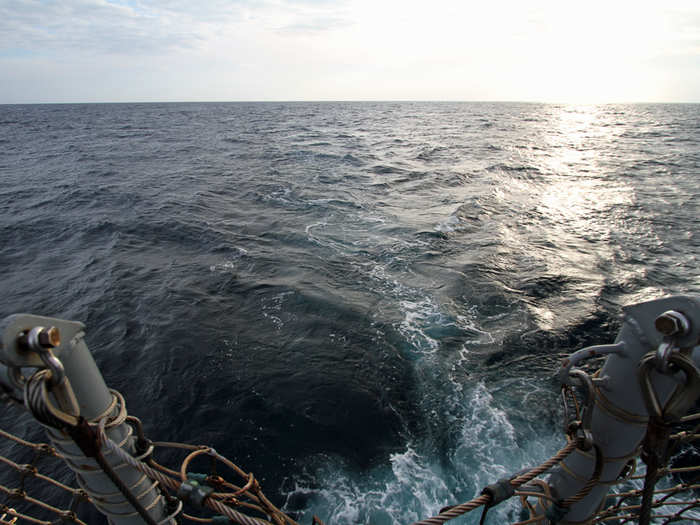
As part of the sea trials, though, the Barry was driven to her top speed of almost 38 mph causing this wake.
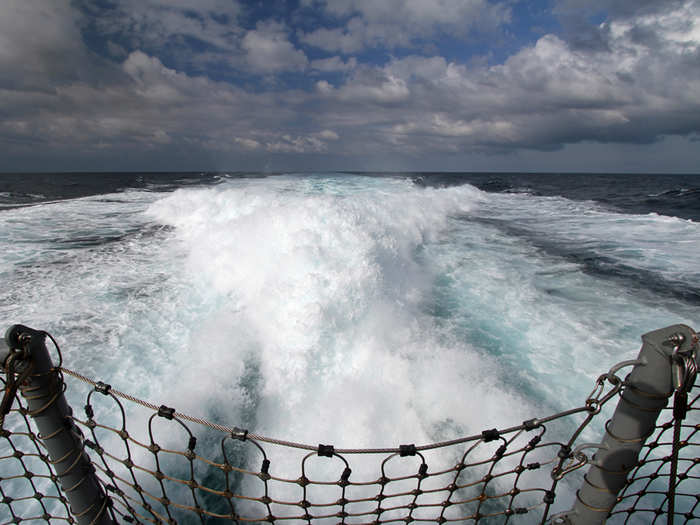
When top speed was reached the Captain called for 'hard rudder' — first one way ...
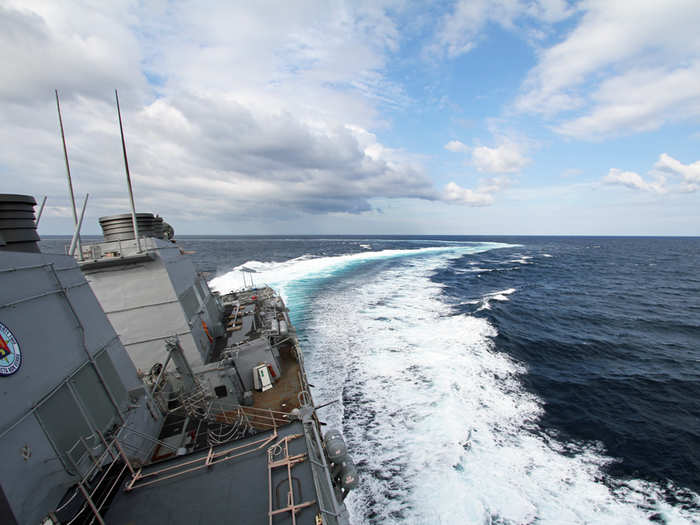
... Then another.
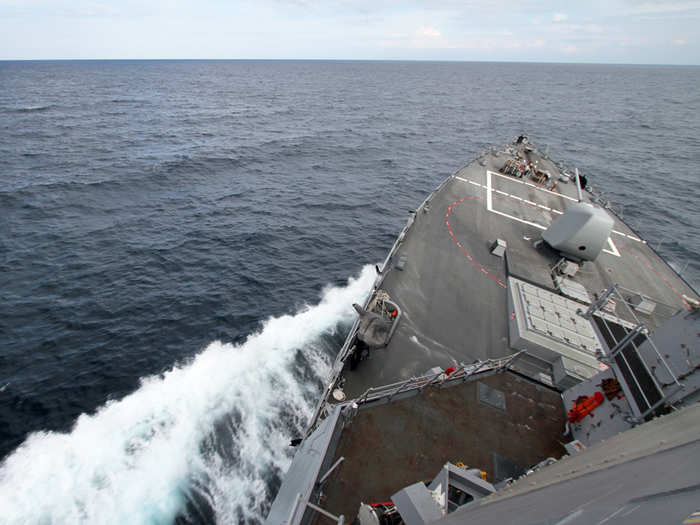
For what had become a still day, the chop brought about by the ship was immense. This blast caught us far above the waterline outside the bridge.
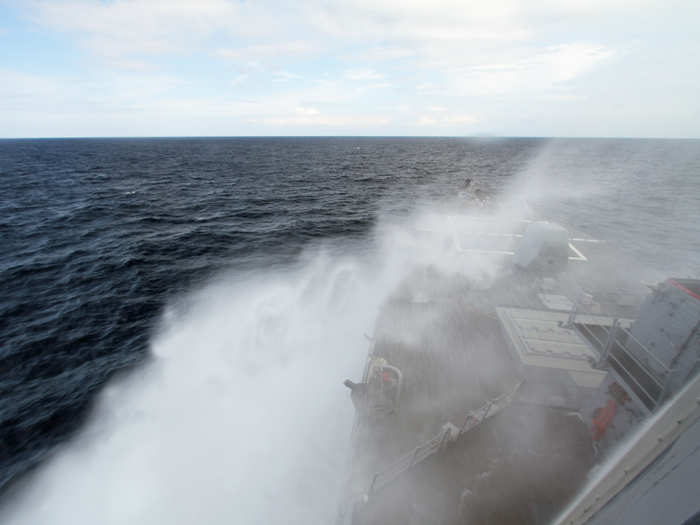
The final test of the day threw the ship in reverse. Here's the front of the ship trailing a wake as it travels in reverse.
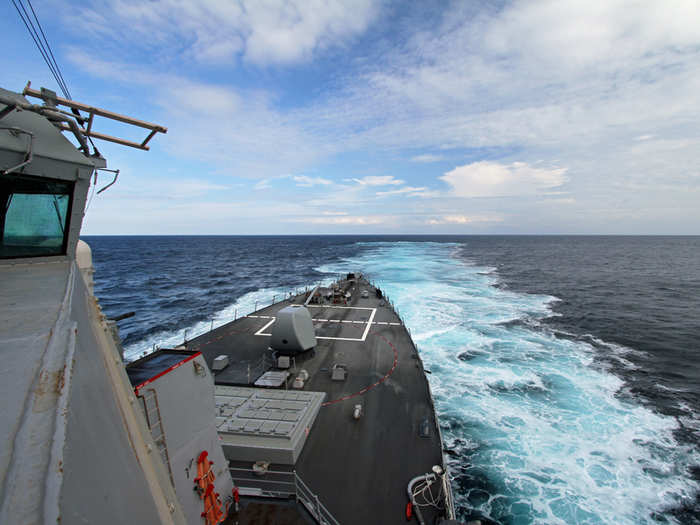
Tests concluded, the crew cleaned weapons just like they do anytime they're fired. The red jacketed rounds are live, but un-fired.
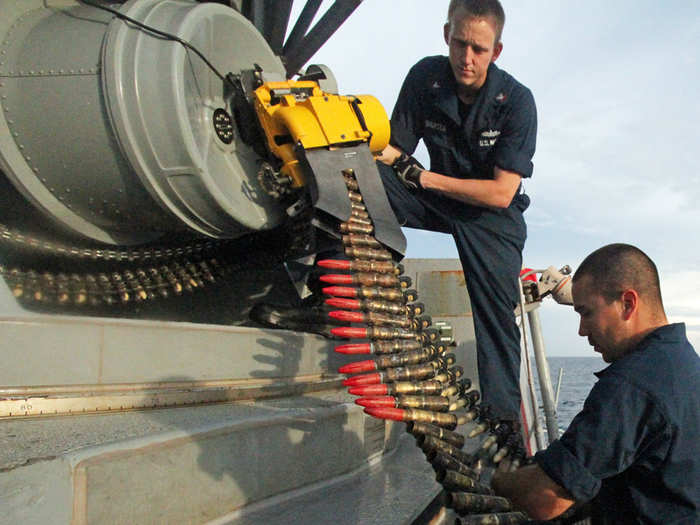
This 20mm casing placed beside a quarter offers an idea of how large the 20mm rounds are.
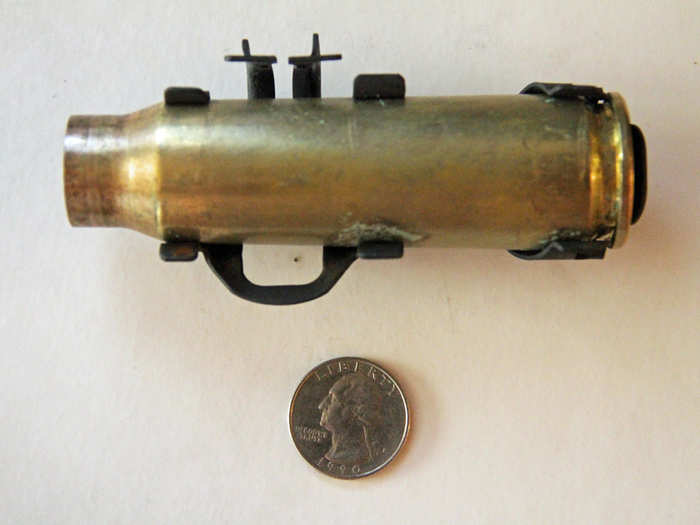
The used belts are separated off and placed in ammunition cans.
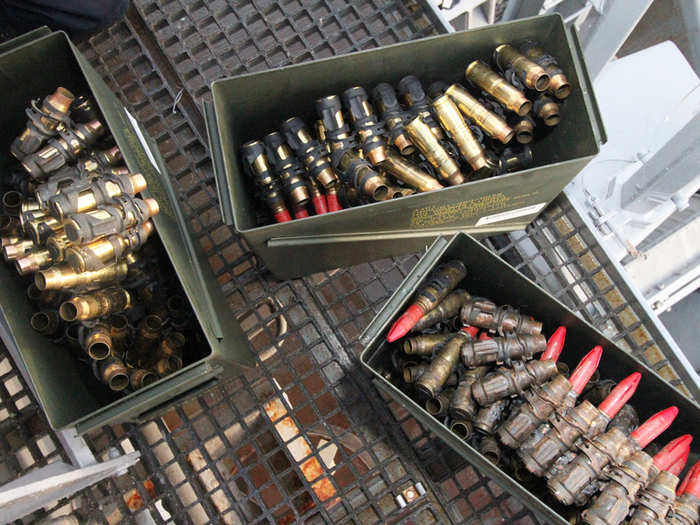
And promptly 'Deep-Sixed' — tossed into the ocean.
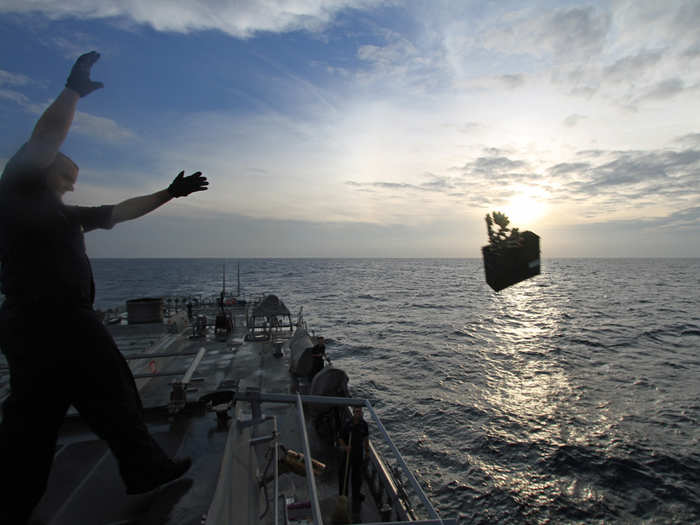
After the weapons team removes the barrel to the 20mm gun, we took a last walk around Barry.
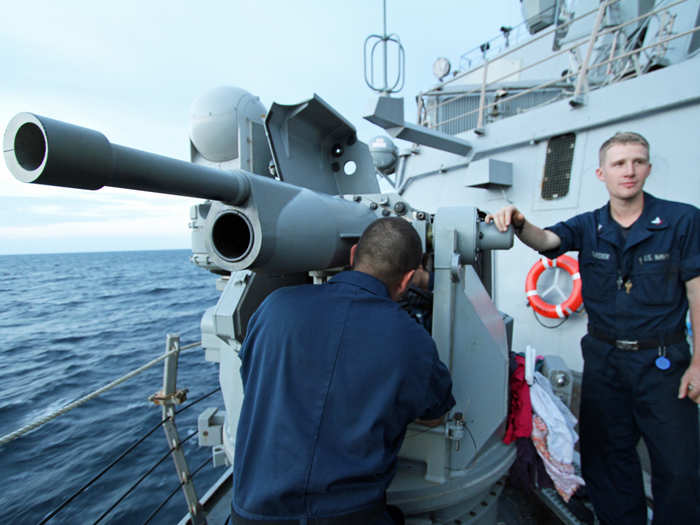
In the male head, or restroom, is a reminder of what the crew knows at all times: the Barry is designed for war. In a chemical/biological/radiological (CBR) environment, not even the toilet can be used.
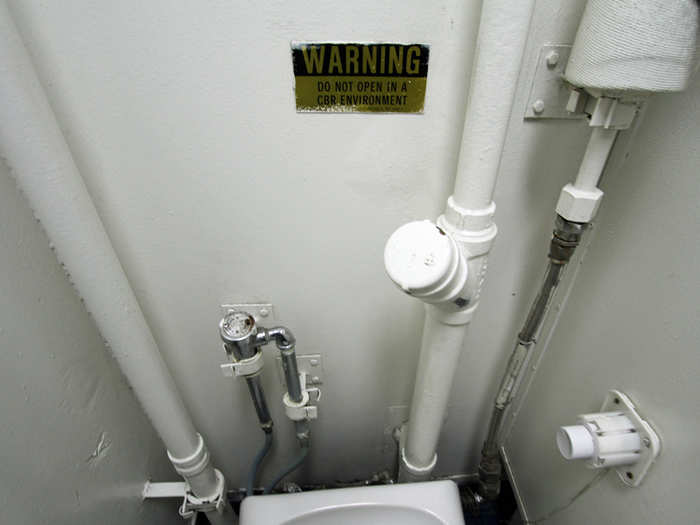
Even in this main passageway a bright yellow sticker reminds crew that the ship could go down at any point.
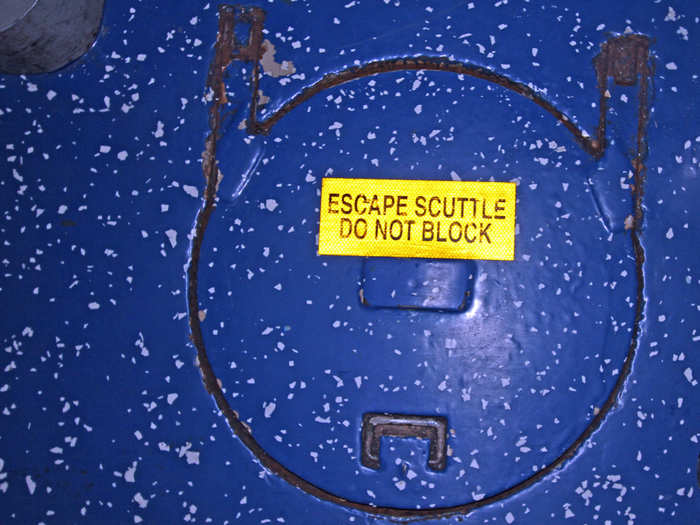
But none of the Barry's sailors need to be reminded; almost all of them pull watch, looking for contact on the horizon and for fellow sailors who have fallen into the water. Just like they're doing on deployment now.
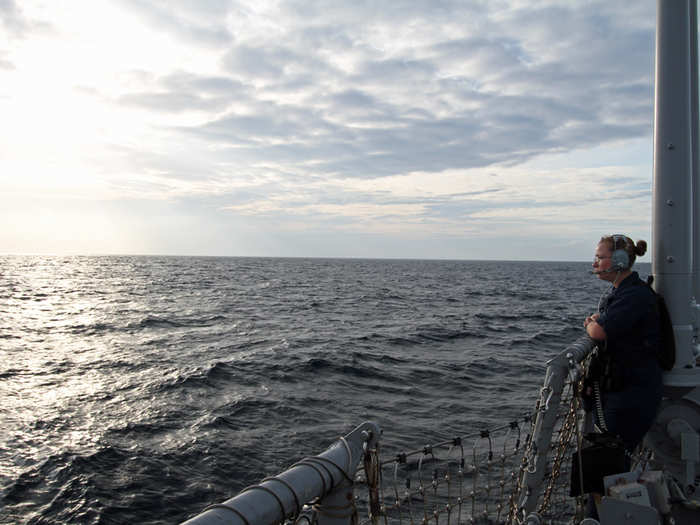
Getting ready for inspection is stressful and so is a combat deployment. Without many places to wind down but out here, sailors meet to grab a smoke at the rear of the ship.
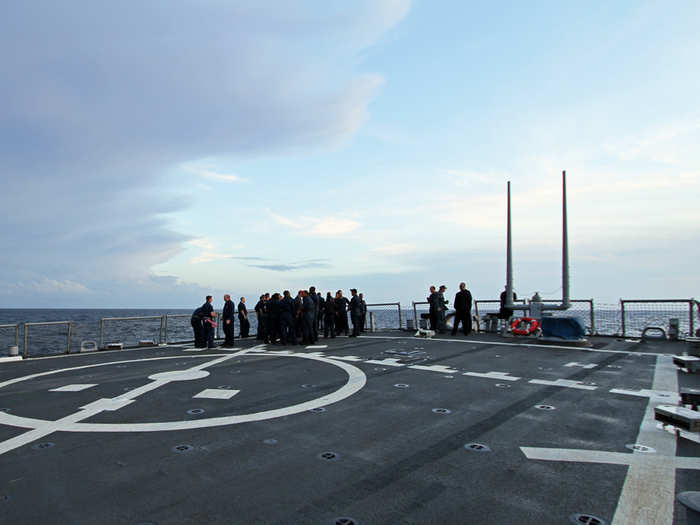
To keep up morale, command sponsored an ice-cream social for the enlisted crew in their mess. 'The Avengers' was playing on a couple of small TVs to the right.

After some ice-cream, we head back on deck for an anti-sub exercise that runs hours late and we call it a night.
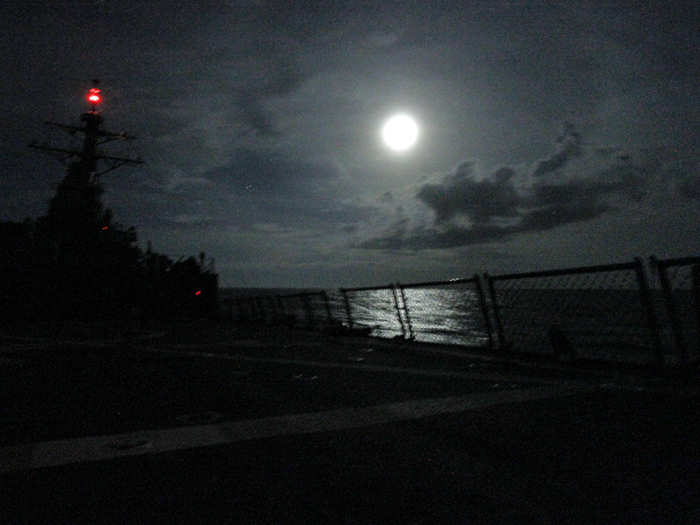
On all exterior passages and sleeping quarters, red lights provide illumination and security while preserving night vision.
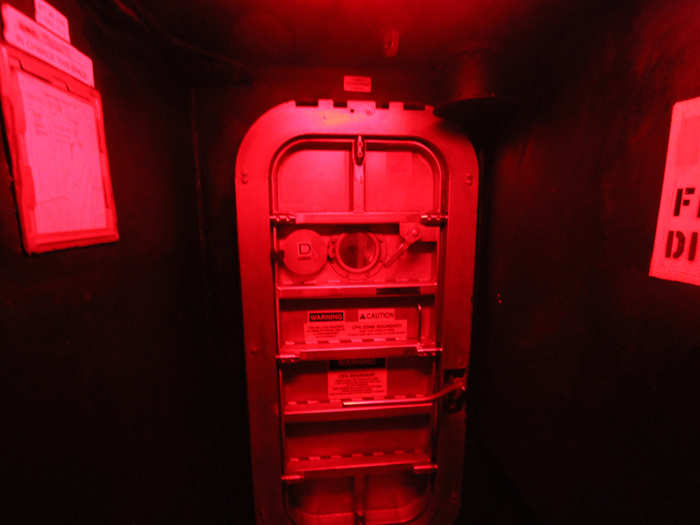
It's dark in sleeping quarters and most crew carry a flashlight. Just one of the many tools the Barry's crew needs when they're deployed.
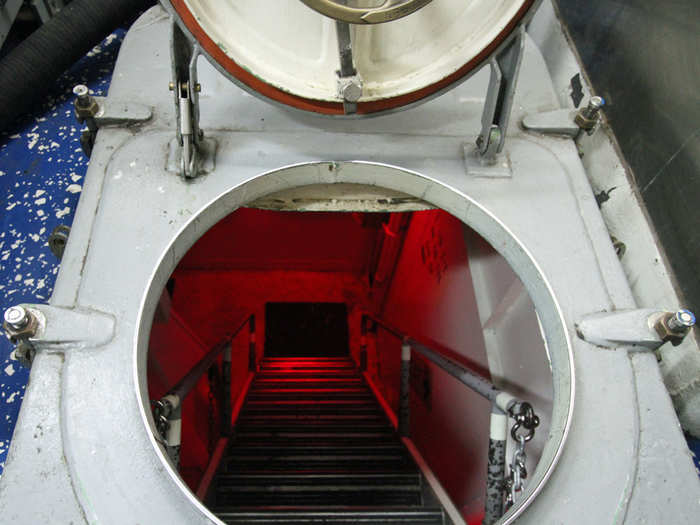
The USS Barry is big but it does not have a flight deck like this ...
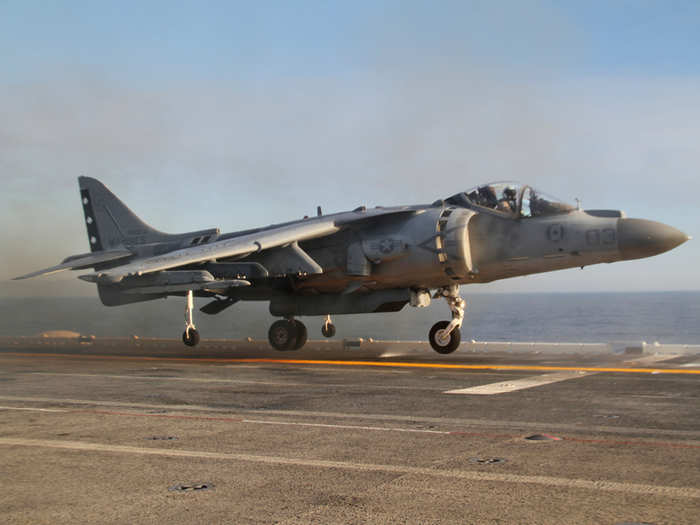
Popular Right Now
Popular Keywords
Advertisement